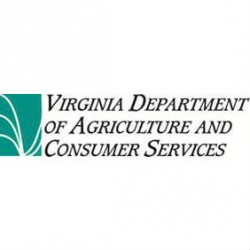The Virginia Department of Agriculture and Consumer Services has confirmed a diagnosis of Equine Herpesvirus-1 (EHV-1) on a second farm in Virginia. On August 15 the department announced an unrelated finding of EHV-1 on a farm in Culpeper County. That farm continues to be under quarantine.

This farm is under quarantine and all exposed horses are being monitored twice daily for fever (temperature over 101.50o F) and other clinical signs.
No horses have been on or off the premises for 1 year. There are no horses near this farm that have been exposed, and there is no association between this farm and any of the horses or people at the first quarantined farm, including equine professionals. While there are vaccines against the EHV-1 virus, the vaccines are ineffective against the neurologic strain.
Dr. Charles Broaddus, State Veterinarian with VDACS, says there is no cause for alarm concerning the general horse population in Virginia. “Equine Herpes Virus-1 (EHV-1) is a virus that is present in the environment and found in most horses all over the world,” he said. “Horses are typically exposed to the virus at a young age with no serious side effects. A large percentage of horses carry the virus with no clinical signs for the remainder of their lives. Horses can spontaneously shed it in their nasal secretions. Rarely this causes exposed horses to develop the neurologic form of the disease.” He added that practicing good biosecurity every day is the best way to minimize disease spread.
The Equine Disease Communications Center at equinediseasecc.org/biosecurity has more information on best practices for disease prevention in horses and VDACS has more information on EHV-1 here: vdacs.virginia.gov/animals-equine-herpes-virus.shtml.
Horse owners may also contact VDACS’ Office of Veterinary Services at 804.786.2483.










